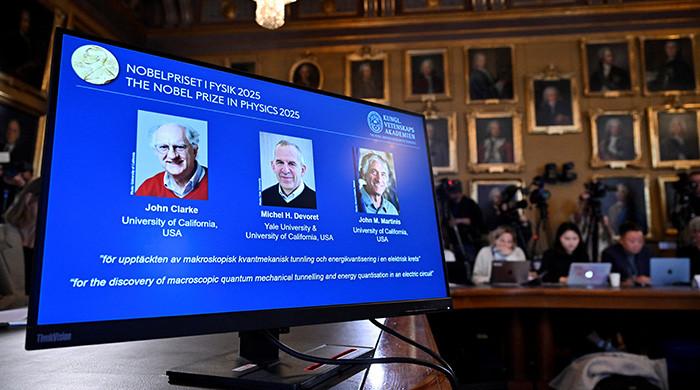
Nobel Prize in Physics 2025: Celebrating the Pioneers of Quantum Mechanics
On October 7, 2025, the Royal Swedish Academy of Sciences announced the winners of this year’s Nobel Prize in Physics, honoring three brilliant scientists—John Clarke, Michel H. Devoret, and John M. Martinis. This esteemed recognition celebrates their groundbreaking contributions to the field of quantum mechanics, a domain that has reshaped our understanding of the universe and paved the way for revolutionary technologies.
Understanding Quantum Mechanics: A Brief Overview
Quantum mechanics is a fundamental theory in physics that describes the physical properties of nature at the scale of atoms and subatomic particles. Since its inception in the early 20th century, it has evolved into a crucial framework for understanding the behavior of matter and energy. Concepts such as wave-particle duality, superposition, and entanglement challenge classical physics notions and have led to innovations in various fields, including computing, cryptography, and telecommunications.
The Role of John Clarke
John Clarke, a prominent figure in the field of quantum mechanics, has significantly advanced the understanding of quantum measurement and control. His work on superconducting qubits has opened new avenues for quantum computing, enabling the development of more powerful and efficient quantum devices. Clarke’s research has not only contributed to theoretical advancements but has also led to practical applications that may transform industries reliant on quantum technology.
Contributions of Michel H. Devoret
Michel H. Devoret has been instrumental in developing quantum circuits based on superconducting technologies. His pioneering work on quantum coherence and error correction has been vital in the quest for fault-tolerant quantum computing. By addressing the challenges of decoherence, Devoret’s research has laid the groundwork for building reliable quantum systems capable of performing complex calculations that were previously thought impossible.
John M. Martinis: Pushing the Boundaries
John M. Martinis is another key player in the realm of quantum mechanics, recognized for his exceptional contributions to the advancement of quantum computing. His innovative approaches to qubit design and control have significantly enhanced the performance of quantum processors. Martinis’s collaboration with various institutions has accelerated the pace of research, bringing us closer to realizing the potential of quantum technologies in everyday applications.
The Impact of Their Research on Quantum Computing
The combined efforts of Clarke, Devoret, and Martinis have ushered in a new era of quantum computing. Their research not only provides a deeper understanding of quantum mechanics but also offers practical solutions to the challenges faced in the development of quantum technologies. The advancements made by these scientists are paving the way for a future where quantum computers could solve complex problems far beyond the capabilities of classical computers.
Real-World Applications of Quantum Mechanics
1. Quantum Computing: The work of Clarke, Devoret, and Martinis has laid the foundation for the next generation of quantum computers, which promise to revolutionize industries by solving problems in drug discovery, cryptography, and complex system simulation.
2. Quantum Cryptography: The principles of quantum mechanics are applied in quantum cryptography, offering unprecedented levels of security in data transmission. This technology ensures that any attempt to intercept or eavesdrop on communications can be detected.
3. Quantum Sensors: Quantum mechanics has enabled the development of highly sensitive sensors that can detect minute changes in physical phenomena. These sensors have applications in fields ranging from medical imaging to environmental monitoring.
4. Material Science: The understanding of quantum behaviors allows scientists to design new materials with tailored properties, leading to innovations in electronics, energy storage, and more.
The Significance of the Nobel Prize in Physics
Winning the Nobel Prize is one of the highest honors a scientist can achieve. It not only recognizes the individual contributions of the laureates but also highlights the importance of their research in advancing human knowledge. The 2025 Nobel Prize in Physics serves as a reminder of the vital role that quantum mechanics plays in our understanding of the universe and the potential it holds for future technological advancements.
Conclusion
The 2025 Nobel Prize in Physics awarded to John Clarke, Michel H. Devoret, and John M. Martinis underscores the profound impact of their work on the field of quantum mechanics and its applications. As we continue to explore the intricacies of quantum theory, the contributions of these pioneers will inspire future generations of scientists and innovators. The journey into the quantum realm is just beginning, and the possibilities are limitless.
---
FAQs
Q1: What is quantum mechanics?
A1: Quantum mechanics is a fundamental theory in physics that describes the behavior of matter and energy at the atomic and subatomic levels.
Q2: Why is the Nobel Prize in Physics awarded?
A2: The Nobel Prize in Physics is awarded to individuals who have made significant contributions to the field of physics, recognizing their innovative research and discoveries.
Q3: What are qubits?
A3: Qubits, or quantum bits, are the basic units of quantum information. Unlike classical bits, which can be either 0 or 1, qubits can exist in multiple states simultaneously due to the principle of superposition.
Q4: What are some applications of quantum computing?
A4: Quantum computing has potential applications in various fields, including drug discovery, cryptography, financial modeling, and complex system simulations.
Q5: How does quantum cryptography work?
A5: Quantum cryptography utilizes the principles of quantum mechanics to secure communication channels, ensuring that any eavesdropping attempts can be detected.
Tags
Technology
